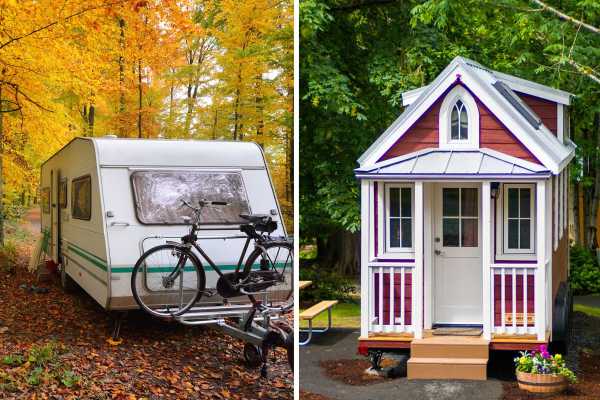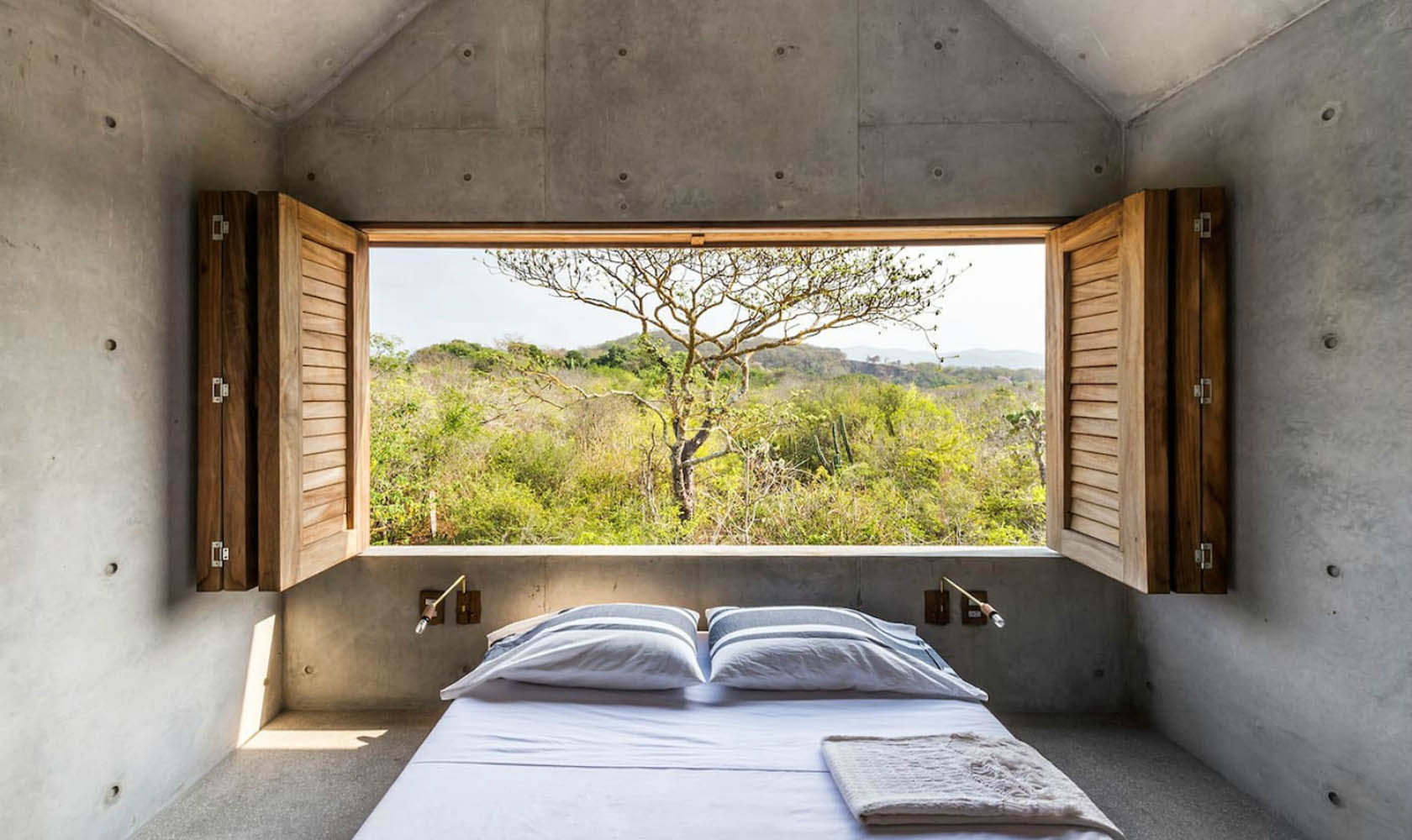Once you’ve decided on living tiny, what do you do next? One of the major decisions to make is whether you’d like to have a permanent tiny house or a mobile home. While you can get the comfortable stability in a tiny home that stays put, the latter allows you to travel and essentially take your life along with you for the ride.
To help with your decision-making, we have broken down the difference between a tiny house and a mobile home, as well as the pros and cons of living in them.
The differences between a tiny house and a mobile home
Cost
A median cost for a house on wheels ranges from $60,000 to 80,000, according to Home Advisor. Meanwhile, a tiny house on foundation can cost around $35,000 to over $150,000. Bear in mind that these prices vary, as it ultimately depends on the materials you use, appliances you install, and other variables. Those that are interested in a permanent home, land costs are also a huge part of the budget, while you will have to think about parking costs for mobile homes.
Size
Mobile homes aren’t a new concept, as they’ve been around since the 50s. However, what was once the norm to have a mobile home measuring 12 feet wide and 60 feet long, they are now slightly more compact to take into consideration the amount of travelling it will endure. These days, a typical mobile home are around 14 to 18 feet wide and 40 feet long. Surprisingly, this gives dwellers more space than most tiny houses: a standard tiny home are generally around 8 feet wide and 26 feet long.
Style
There’s only so much you can do to set your mobile home apart from the rest, as you’re often limited to a single-story, rectangular-shaped style. Of course, you can alter the dimensions to your liking, but there’s less room to design creatively. On the other hand, tiny houses get a lot more flexibility when it comes to aesthetics. As long as it remains a small square footage, you can seek out innovative designs, as well as pick more unique fittings and furnishings.
Build speed
There are many mobile home manufacturers that offer different styles, so it’s only a matter of browsing for the one that suits you. As it’s already built off-site, there’s zero set up time. Permanent tiny homes can take longer to build, especially if you’re building on-site, but it could take a lot less when buying a prefab home. Expect to spend around 63 days if you are DIY-ing a tiny home, but it can take a fraction of the time when hiring professionals.
Pros and cons of a tiny house
Pros
- Endless style options. If you’re someone that prioritizes aesthetics and has a unique style, tiny houses can give you the freedom of designing the home of your dreams. Tiny houses aren’t limited to a particular shape or size, nor are they restricted in the type of materials you use.
- Environmentally sustainable. A tiny home’s size alone makes it more eco-friendly than traditional homes. On top of that, fewer resources and materials are needed to build them. Most tiny houses are also self-sufficient and energy-efficient, by using natural resources (like the sun with solar panels) to sustain those who live in them.
- Bonding environment. Living in a tiny space encourages you to spend more time with family. While living in close quarters with everyone can get challenging at times, remember that you also have an abundance of free space right outside your doorstep.
Cons
- High start-up costs. Initially, the cost of building a tiny home – prefab or stick-built – can be high. On top of that, you will also have to purchase land before you build, which can be costly. This can all be paid off in the long run, as utility bills in a tiny home are significantly less.
- Complicated laws and regulations. Building a tiny home is different than building a conventional home, as the regulations around it vary. For example, there is no official size of what constitutes as a tiny home and only certain land can be used to build tiny houses.
Pros and cons of a mobile home
Pros
- Mobility. With a mobile home, mobility is a given. Although it’s not as simple as it looks to move your home at a whim, it’s still the more flexible option for those that want to live a more nomadic life.
- Price. Mobile homes are significantly cheaper than your standard tiny house, making it a more likely option for those who want to save. However, keep in mind other hidden costs that you may incur when you have a mobile home, such as parking, gas, and maintenance.
- Bigger space. Space can be relative, but as mentioned earlier, you can get more space out of a mobile home compared to a standard-sized tiny house. If more space is what you require, then mobile homes may be your better option.
Cons
- Less self-sufficient. Generally, mobile homes are not as self-sufficient as tiny houses. Being on the move means that you would have to rely on hooking up to utility lines when you need it.
- When having your mind set on a mobile home, remember that its value tends to depreciate over time, similar to vehicles. It typically starts to go down once it leaves the manufacturer.
Which one is better?
The better option between the two is a choice that is dependent on you and your priorities. For those that are looking for an affordable option, with the ability to move around, it would be a mobile home. You can get it for around $60,000 or less, if there are secondhand models available.
If you want stability with the chance to design your home from top to bottom, then a permanent tiny house is for you. Additionally, if reducing your ecological footprint is a must, then you can also be more self-sufficient in a tiny home.




